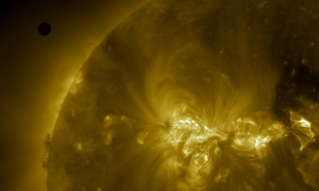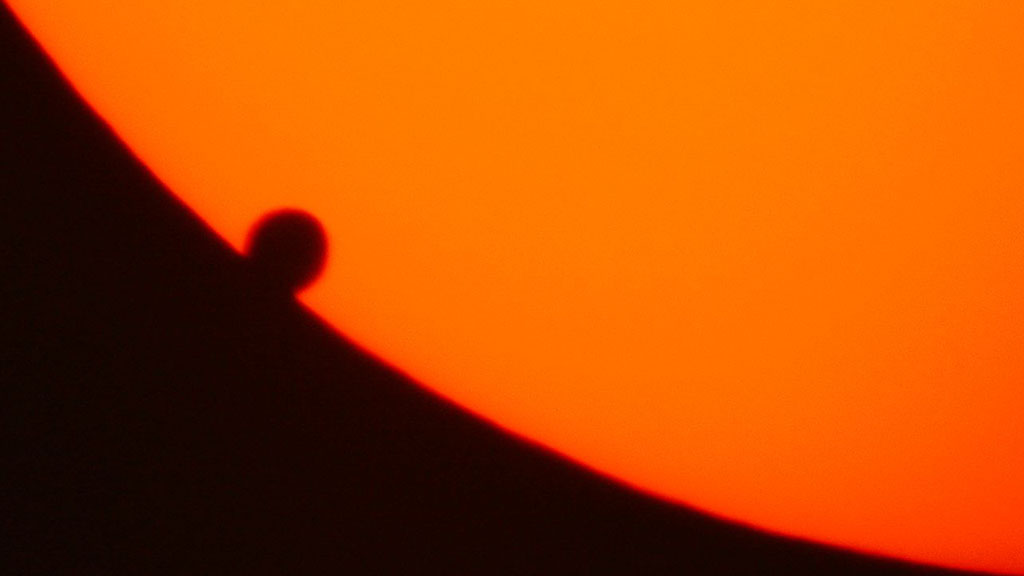Venus Transit - 2012
It was your last chance for the next 105 years.
A transit is when a planet passes directly between the Sun and the Earth and we see the planet as a small dot moving slowly across the face of the Sun. A Venus transit occurred in 2004 (see Venus Transit from GOES/SXI). Prior to that it was 1882. The last Venus transit occurred on June 5-6, 2012 and the next one won't occur until 2117 (See the NASA Eclipse Web Site).
To understand the significance of these events, it helps to know the history of how the Venus transits provided one of the first estimates of the size of the Solar System, and eventually the Universe (see A Brief History of the Transit of Venus).
In this visualization, there are a few things which should be noted.
1) The camera view is NOT from anywhere on the surface of the Earth, but corresponds to an observer positioned along the Earth-Sun line, but over the north pole of the Earth. This causes the path of Venus to cross the solar disk lower (closer to the solar equator) than it would appear to an observer on the surface of the Earth.
2) The ephemeris used for computing the planetary positions was not the high-precision JPL ephemeris (DE-421), but a lower-precision approximation. Yet, when tracked in detail, the transit takes place only about five hours later. It was decided that since the view of the transit in this visual does not correspond to any actual location ON the Earth, it might be misleading to present high-precision timing of the event.
This visualization was developed for conceptual illustration and not meant for precision scientific use.
This movie illustrates how the relative motions of the Earth and Venus in their orbits will produce the transit.
Extremely high-resolution frames suitable for Hyperwall projection. This version also has the planet trails rendered thinner, a high-resolution background star field, and the model of the Earth fades in sooner.
Credits
Please give credit for this item to:
NASA/Goddard Space Flight Center Scientific Visualization Studio
-
Animator
- Tom Bridgman (Global Science and Technology, Inc.)
-
Writer
- Karen Fox (ADNET Systems, Inc.)
Release date
This page was originally published on Tuesday, May 29, 2012.
This page was last updated on Monday, January 13, 2025 at 12:05 AM EST.
Series
This page can be found in the following series:Datasets used
-
Standish Approximate Planetary Ephemerides
ID: 736Planetary ephemerides
This dataset can be found at: http://ssd.jpl.nasa.gov/?planet_pos
See all pages that use this dataset
Note: While we identify the data sets used on this page, we do not store any further details, nor the data sets themselves on our site.

